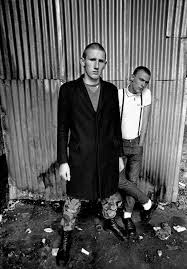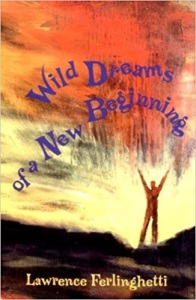A while ago, Tyson published Froshme on 4C , ending his post with an invitation to others to share their frosh empathy stories. I hesitated at first because I felt that my first year experience was so distant from that of the ifp students. Yet as I wrote it out, I noticed some similarities, and found some empathy.
Of course, one of the defining characteristics of ifp students is that they are not from here, that they are experiencing the quaint rituals of frosh week as strangers to this culture. On the face of it, this would seem quite different from my situation, as I had grown up in Toronto and was very familiar with the university. However, the difference is not as great as it would seem, as I took two deliberate steps that alienated me from mainstream U of T experience: I spent my last year of high school at ASE alternative school, and I then took a one-year break, most of which I spent in the UK.
England had been transformative for me: I had felt my first stirrings of socialism walking past the hedge-fortified mansions of Chislehurst,
and I had become viscerally aware of my own vulnerability, physical, emotional, economic, on the streets of skinhead-era Notting Hill.
 Back in Canada, the social world of University of Toronto seemed childish to me. The froshweek students, for all their depravity, seemed impossibly naive and sheltered, buffered by their unacknowledged privilege. (Of course, it had not occurred to me that I also enjoyed privilege, simply in the fact that I had been able to leave London, never mind that my parents had scooped me up and taken me off to Greece on the way home to Canada [and yes, I whined about that, too].)
Back in Canada, the social world of University of Toronto seemed childish to me. The froshweek students, for all their depravity, seemed impossibly naive and sheltered, buffered by their unacknowledged privilege. (Of course, it had not occurred to me that I also enjoyed privilege, simply in the fact that I had been able to leave London, never mind that my parents had scooped me up and taken me off to Greece on the way home to Canada [and yes, I whined about that, too].)
At the same time, I also felt disengaged academically. At ASE, we set our own curriculum, so I did what any pretentious 17 year-old would do, and read everything (including the Bible). Thus, clearly, I knew everything.
I was outraged to find that my compulsory survey English Lit course required us to purchase a reader (Norton Anthology, the one with all the men on the front, but that’s a different rant).

I resented the vocabulary lists and fill-in-the-blanks exercises that formed the bulk of my second year French language course. I felt that I had progressed beyond the need to learn the nuts and bolts of the language — although I was a little surprised to see my more compliant classmates receiving higher marks for their compositions. Now I understand that there is no automatic equivalency between feeling comfortable with a language and actually speaking it well, and I squirm a little at this memory.
So, even though our worlds are quite different, I can relate to the sense of cultural disconnection that many of our students seem to feel. The complex calculus of beer and hazing rituals holds no meaning for them, and they may see no value in enhancing their familiarity with these things.
 Similarly, I sometimes sense a similar academic frustration in my students . They have worked so hard to master a certain set of skills,
Similarly, I sometimes sense a similar academic frustration in my students . They have worked so hard to master a certain set of skills,
 and suddenly the goal posts have moved: some skills need to be un- or re learned. The scaffolded exercises that we offer may well feel like a step backwards, a threat to their fledgeling sense of academic sovereignty.
and suddenly the goal posts have moved: some skills need to be un- or re learned. The scaffolded exercises that we offer may well feel like a step backwards, a threat to their fledgeling sense of academic sovereignty.
Faced with this situation, I did what I see many ifp students do — I retreated to more familiar territory. In my case, I re-connected with friends from high school (many of whom were still in high school b/c alternative school). Their lives seemed a little more real: they lived in apartments above stores and worked survival jobs to support their pets and their music habits. They read what they wanted and discussed the books freely and with passion. Granted, these improvised reading lists were a little heavy on Genet and Ferlinghetti, but the quest for knowledge felt more authentic than the one I was offered at university.
When I see my ifp students re-embrace the familiar, setting their clock 12 hours ahead, spending their nights talking to friends back home, closing their social ranks within the program, I may have been a little quick to judge. I need to remind myself that I, too, needed to “go back to highschool,” at least for a little while.







October 4, 2017 at 10:33 pm
I like to read your honest writing 😉
LikeLiked by 1 person
October 5, 2017 at 12:38 am
thanks!
LikeLike